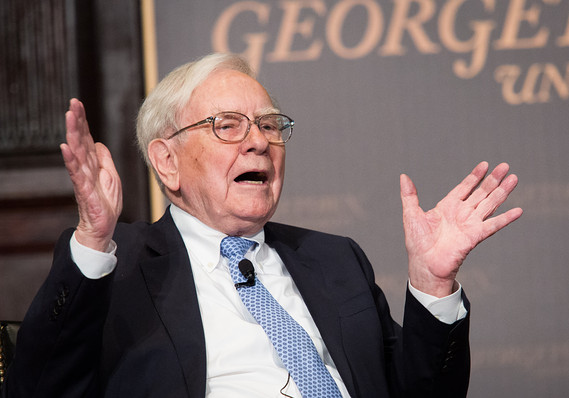
Warren Buffett’s recent actions in the stock market have caught the attention of many, as global equity markets took a significant hit following news that the renowned investor sold a substantial amount of stock, including half of his Apple holdings, and amassed a record cash reserve for Berkshire Hathaway in the second quarter. Despite Buffett’s well-known stance against market timing and his advice for others to avoid it, his recent moves have raised eyebrows among his Wall Street followers. They speculate that Buffett, at 93, might have seen troubling signs in the economy and market valuations. For seven consecutive quarters, Buffett has been a net seller of equities, likely due to high valuations. However, his selling activity surged last quarter, with Berkshire offloading over $75 billion in stocks and boosting its cash reserves to an unprecedented $277 billion. This aggressive selling has led many of Buffett’s followers to interpret his actions as a bearish outlook on the markets and the economy, potentially exacerbating existing recession fears, especially after disappointing jobs data.
James Shanahan, an analyst at Edward Jones, expressed concern over Buffett’s massive liquidation, noting that it sends a negative signal when such a seasoned investor isn’t reinvesting his cash but is instead selling off assets. Buffett’s significant reduction of his Apple stake by more than 49% and the sale of Bank of America shares, his second-largest holding, have been particularly striking. Additionally, Buffett’s minimal repurchase of Berkshire shares in the second quarter, compared to the $2 billion repurchased in each of the previous two quarters, suggests a cautious approach.
Barbara Goodstein, Managing Partner at R360, suggested on CNBC that Buffett’s actions indicate he might be preparing for a recession, balancing both offensive and defensive strategies by reducing exposure to potentially overvalued sectors while conserving cash for future acquisitions. Last quarter, Buffett was selling stocks as the S&P 500 reached an all-time high, driven by hopes that the U.S. would avoid a recession and control inflation. However, these expectations were challenged by a weaker-than-expected July jobs report, leading to a sharp decline in global markets. The Dow Jones Industrial Average dropped 1,000 points at one point, and Japan’s Nikkei 225 experienced its worst day since the 1987 Black Monday crash, falling 12%. Despite Buffett’s recent moves, Berkshire Hathaway’s stock also fell by more than 3%.
Shanahan noted that Buffett’s significant selling might have anticipated the market downturn and growing bearish sentiment. Under the influence of his investment managers Ted Weschler and Todd Combs, Buffett began investing in Apple eight years ago, marking a departure from his usual avoidance of technology companies. Buffett has praised Apple’s CEO Tim Cook, the loyalty of iPhone users, and the company’s consistent buyback strategy. Given that Apple’s stake had grown to represent half of Berkshire’s equity portfolio, some believe Buffett’s decision to sell was a strategic move to manage risk and reduce portfolio concentration.
Jim Reid, head of global economics and thematic research at Deutsche Bank, suggested that Buffett’s actions could be seen as risk management, given that Apple remains his largest single position. When Buffett reduced his Apple stake by 13% in the first quarter, he hinted at the Berkshire annual meeting in May that it was partly for tax reasons, anticipating potential future increases in capital gains tax. However, the scale of his recent selling suggests that there might be more to it than just tax-saving strategies. Buffett has also indicated that higher taxes are likely due to the government’s fiscal policies, which could further justify his decision to sell.